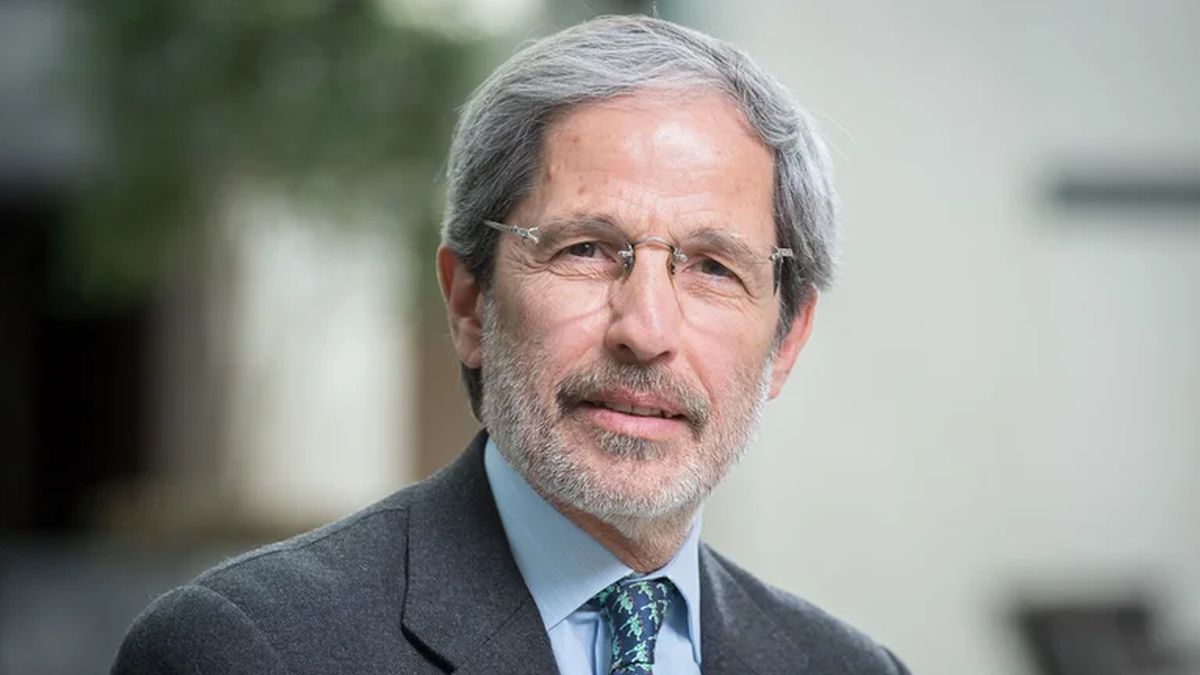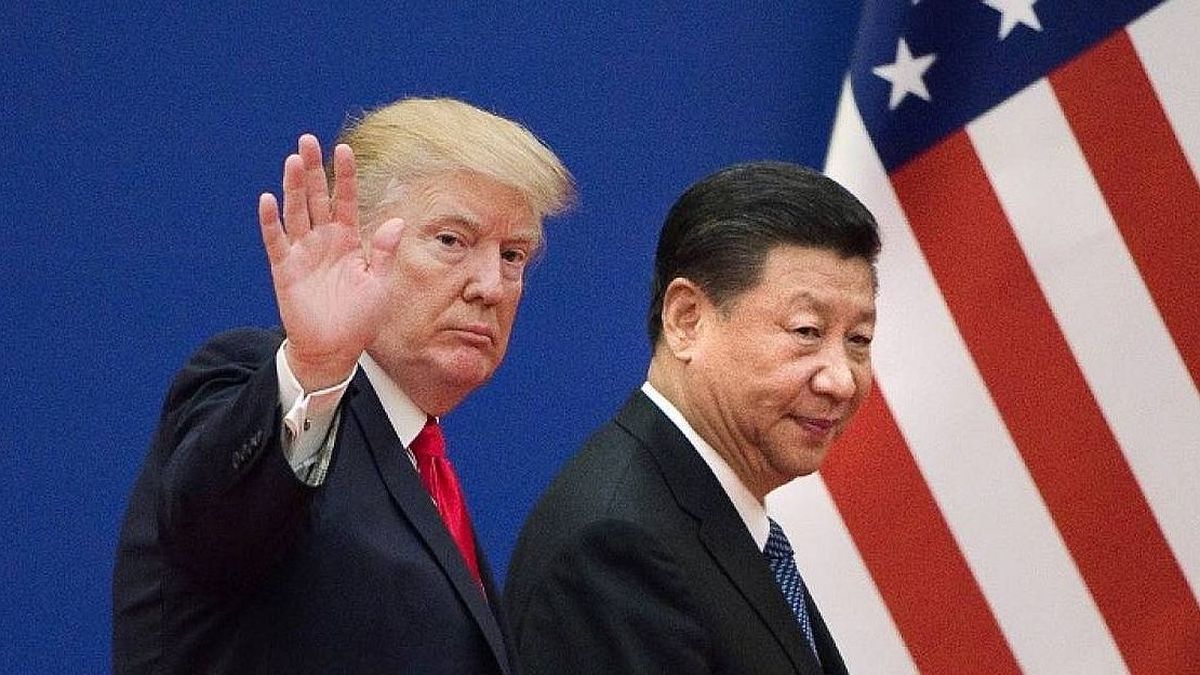Journalist: In what state do you think negotiation with the IMF is today?
Héctor Torres: There are two important elements that are linked and that are unknowns. We know that the government is looking for US $ 11,000 or more. What we also know is that the fund has, as many have, doubts about the sustainability of exchange policy. I am sure that there will be a new program and I would not be surprised if it is US $ 11,000 million or a little more. But one thing is a program of that amount over three or five years, a “classic stand by” or an “extended fund facility” (EFF) with periodic disbursements, and another thing is an initial disbursement of US $ 11. 000 million for the Central Bank to have it to lift the stocks. Read: to sell it in the exchange market for all those who want to dollarize, including the exit of dividends and the disarmament of “Carry Trade” positions. They are two very different things.
Q.: What do you think can happen then?
HT: With this monetary policy, assuming the assumption that the government does not accept any change, I do not see the possibility of an initial disbursement of that caliber so that the Central Bank uses it to buy expensive weights. Si el Gobierno mantiene la política cambiaria, es probable que haya un programa de todas formas, pero me imagino un programa en el cual haya desembolsos periódicos a medida que el Gobierno va, por ejemplo, implementando los cambios estructurales: desregulaciones, una reforma fiscal, Raise withholdings, a labor reform, etc., which can have long -term benefits if they are well designed but generally have short -term costs. That is what finances an EFF program. And I think it would be possible anyway that it remembers. The initial disbursement of US $ 11,000 million so that the BCRA increases reserves and can use them (because having reservations and not being able to use them does not see it) I do not see it if there is no commitment in exchange policy included.
Q.: What kind of exchange policy commitment does the IMF put as a condition for that to happen?
HT: a flexibility of “crawling paste.” But it’s hard to imagine it. The government 15 days ago made the decision, which surprised me, to lower it to 1% monthly before even negotiating with the fund. That government’s decision obviously does not help in that negotiation. Now, why did he? I don’t know, but I found it strange. You also have to be very aware that any type of commitment in exchange policy that the government can take to be flexible the “crawl” and get off 1% fixed responds to an international situation in which the dollar is appreciating in all the Coins, less in the weight, in front of Trump’s arrival. In that situation, the logical thing would be to arm a more flexible exchange policy but we are going towards a more rigid exchange policy because the government has in the head the idea of using the exchange anchor to reach an even lower inflation. It is a political commitment of the government.
Q.: So do you think An agreement that allows you to initially consolidate the reserves to the BCRA is not possible without a devaluation?
HT: reiterate. Without a commitment to change in monetary policy, I do not see an initial disbursement of that amount or an equivalent amount. Now, you also have to be aware that any type of commitment in exchange rate is very sensitive to the market. As soon as the market smells that, to achieve US $ 11,000 million of initial disburse of the currency. With which another delicate issue is not only the commitment that is taken but how it is announced and how it is implemented. I doubt that the background will say “if you do not devalue, I do not give you money.” What is going to ask, surely, is a different exchange policy than the current one, that has more flexibility and, in that context, there is a disbursement. But you also have to remember that the IMF learned from the bad way that, once the money gives you, the money is yours and you use it as you want for more than you have made some different commitment. Then the Patera Fund, threat that the program ends, but you will end up asking for a “waiver” (dispens). We already saw it with (Sergio) Massa and saw it with (Mauricio) Macri, just at the time when (Luis) Caputo was president of the BCRA, when he used the background silver not foreseen in the program. So I think it is difficult to imagine that the IMF will make that initial disbursement so important without being very clear what the exchange policy commitment is.
Q.: If that commitment existed and a large initial disbursement will be specified, do you see the background accept a scheme where exchange interventions are allowed? Either with certain bands or other.
HT: Surely yes. But there is, again, the issue of good faith. Because once he gave the money … he can say that the intervention cannot be in the same sense all the time, that there must be a certain intervention band; All that can be. The fund does not prohibit your money from intervening in the exchange market. What surely will not tolerate (or will try to prevent it from happening again) is to use money from the fund to finance the disarmament of “carry trace” positions. They burned with milk and I don’t think they want to burn again.
Q.: Regarding the discussion about the disarmament of stocks, there seems to be a circular issue. The IMF states that to give that disbursement there must be a very clear commitment on how, when and in what steps it will be opened, and the government says that it needs to strengthen the reserves to be able to lift it without being shocks. How is that resolved?
HT: It is a very difficult question. There are occasions, as in cases of conditionalities that are very sensitive to the market, for example what calls the “contingency plans” fund, in which they are not put white on black in the document that is published. There, what are called “Side Letters” is used, that is, written commitments that are not included in the program but that the directory sees. The procedure is this: there is a meeting attended by the directors only and no document circulates; But in that meeting there is effectively a written letter that each director reads and happens to the one next to it; You cannot get copies but you can obviously inform your capital. It is a procedure that is used little because there is no guarantee that it is not filtered later and is very delicate because the contingent plans, if filtered, can be transformed into a self -fulfilling prophecy. I can’t tell you if this is going to be the case. But the report that took the background regarding the program signed in 2018 and the one that took 15 days ago on the 2022 program, among the things it points out is the lack of contingent plans. So, one issue is the commitment, another is how it will be implemented and another how it will be communicated. They are very different things.
Q.: After the assumption of Donald Trump and with the arrival of the organism’s mission, but with these issues to be resolved, what deadlines of imagining negotiation?
HT: If there is agreement, I would not be surprised to be approved in February and the first disbursements arrive in March. If not, it can last much longer. I believe that the fund wants a program and the government needs a program. But the government is asking for something different from what the fund was ready to give. Trump can help, but it seems to me to believe that the IMF is a Trump government agency. Beyond that, it does not seem very reasonable to believe that Trump, which is presented as a defender of the interests of the “tax payers” (tax payers), wants to finance a capital exit of Argentina. Already (the former representative of the US in the agency, Mauricio) Claver Carone is a guy who was very hurt with the way in which the current Minister of Economy used the resources of the Fund at that time. I imagine that all that will weigh.
Q.: That is, beyond the political support that may be from the Trump government to Milei, is it difficult to think that the IMF delivers a blank free of conditionalities?
HT: That will not happen. Not at all. Milei and Trump’s personal relationship is good. But you have to remember two things. These guys have something in common: the two have a very high concept of themselves, the two self -elogian without any inhibitions, the two have allergy for everything that seems “woke”. But the truth is that they also have many differences. Trump has no restriction in using policy to force market decisions (for example, threats on tariffs); Milei is a person who believes in the market. Trump says he has two moral rules: “By American and Hire American”, that is, “Buy American and American Hire”, and what he wants is to take the manufacturing jobs back to the United States. Milei believes in the market and, Ergo, in free trade; And we are not going to attract manufacturing jobs to Argentina, but rather the opposite. Milei is a guy with principles and ideology. Trump, on the other hand, is a 100% transactional personality: all are “deals” for him. Milei made the decision to align Argentina’s foreign policy with that of the United States. I don’t think Trump give anything that is not in exchange for something. And the alignment of Argentina with its foreign policy already has it in its pocket. I suppose there will be a transaction, which will have to pay in some way.
Q.: Which?
HT: The Free Trade Agreement does not rule it out. Because this idea of increasing tariffs makes them more attractive since, the more there is between the tariff applied to your neighbor and the one you get by having a free trade agreement with the US, it is more the income that generates them To your exporters an agreement. I imagine that part of Trump’s strategy is to raise tariffs for everyone and then say “if you don’t like, come and negotiate here a free trade agreement in my terms.” That is delicate because, if we are going to negotiate it alone, every negotiation tends to reflect the relative power of those who are sitting at the table. If you sat at the negotiating table with the language outside, you need the silver of the guy in front of them and, in addition, there are more tariffs to trade, I do not know if it will be the best situation.
Source: Ambito




